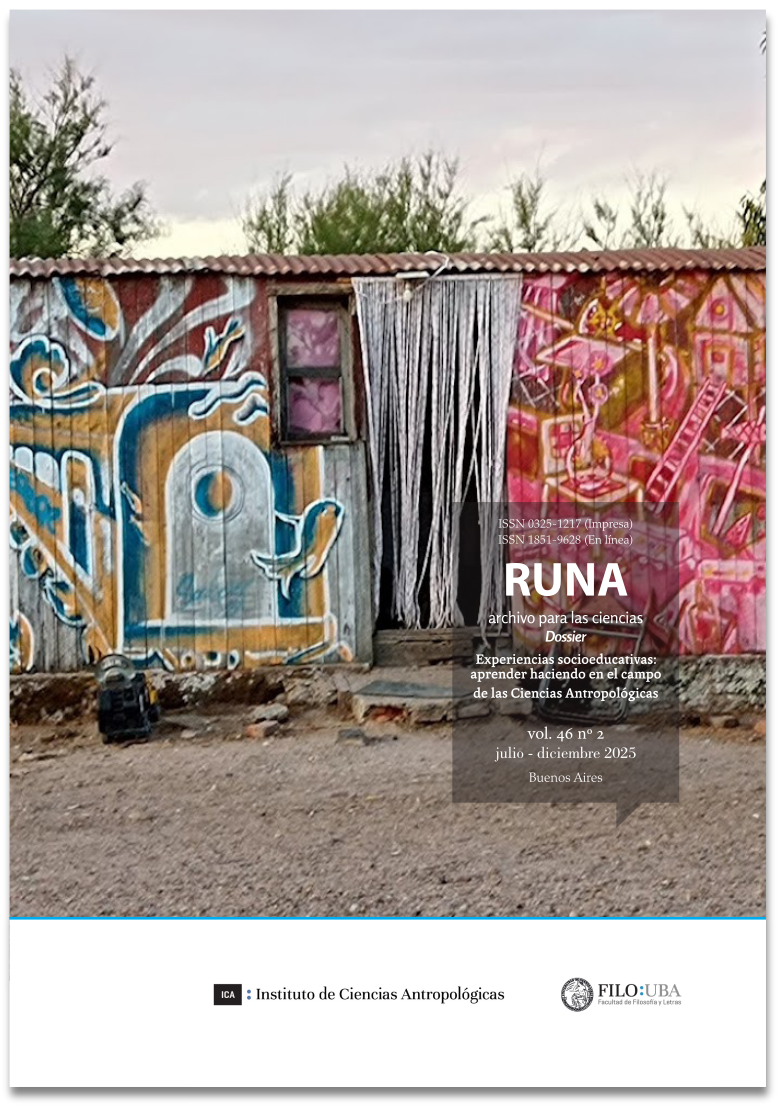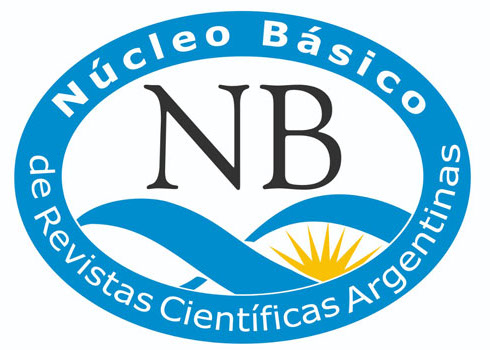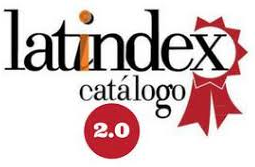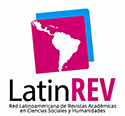Learning by doing with the Xakriabá: territorialized experiences in conducting research and training researchers
Abstract
This article presents the pathways involved in conducting research and training both Indigenous and non-Indigenous researchers, based on experiences involving the Xakriabá Indigenous people. It begins with the problematization of a scientific investigation, broken down into the stages of research proposal, development, identification of possible “applications,” and, later, the proposition of “returns” or “counterparts” to the groups involved. It seeks to focus on learning to do research in co-presence with those directly affected by the consequences of the investigation, as a practice of “self-regulation” of scientific production. It draws on a revisited notion of “communities of practice” (Lave, 2019) and connects it to the idea of “practices in common” (Stengers, 2015) to explore, across different research settings, how relationships define the situated framing of the investigation, as well as how they give rise to a composition of practices that brings together different practitioners in an articulation aimed at responding to diverse interests.Downloads
References
Andrade, R. C., Gomes, A. M. R., & Campos, M. B. (2021). A força comunitária indígena: Reflexões com os Xakriabá no Brasil em tempos de Covid-19. Confluenze, 13, 105–124.
Datta, R. (2017). Decolonizing both researcher and research and its effectiveness in Indigenous research. Research Ethics, 14(2), 1–24. https://doi.org/10.1177/1747016117733296 (Original work published 2018)
De La Cadena, M. (2021). Not knowing: In the presence of... In A. Ballestero & B. R. Winthereik (Eds.), Experimenting with ethnography: A companion to analysis (pp. xx–xx). Durham: Duke University Press.
Dias, J. P., Borba, M., Vanzolini, M., Sztutman, R., Schavelzon, S., & Avery, M. (2016). Uma ciência triste é aquela em que não se dança: Conversações com Isabelle Stengers. Revista de Antropologia, 59(2), 155–186. https://www.jstor.org/stable/26605539
Favret-Saada, J. (2005). Ser afetado. Cadernos de Campo, 13, 155-161
Fernandes, J. V. de S. (2022). A guerra dos 18 anos: Uma perspectiva Xakriabá sobre a ditadura e outros fins de mundo. Belo Horizonte: Fino Traço.
Gomes, A. M. R., Jesus, L. C. de, & Silva, M. M. de A. (2024). Contracartografar e contraprojetar: Construindo caminhos para a autogestão na Terra Indígena Xakriabá (MG). Anais da IX React - Reunião de Antropologia da Ciência e Tecnologia, 6(6), 1–20. Goiânia.
Gomes, A. M. R., de Miranda, S. A., & de L. Tavares, M. (2020). Between territories and knowledge practices: Challenges with indigenous teacher training in Brazil / Zwischen Territorien und lokalen Wissenspraktiken: Herausforderungen der indigenen Lehrer*innenausbildung in Brasilien. Soziale Passagen, 12, 1–21.
Jesus, L. C. de. (2024). Em companhia Xakriabá: Práticas de arquitetura entre o território indígena e a universidade (Trabalho de conclusão de curso). Curso de Arquitetura e Urbanismo, Escola de Arquitetura, Universidade Federal de Minas Gerais, Belo Horizonte.
Jones, A. & Jenkins, K. (2014). Rethinking Collaboration: Working the Indigene-Colonizer Hyphen. In N. Densin, Y. Lincoln & L. T. Smith (Eds.), Handbook of Critical and Indigenous Methodologies (pp. 471-487). Thousand Oaks: Sage Publications
Leach, J. (2023). An aesthetic of knowledge: Relations and the documentation of traditional knowledge in Papua New Guinea. In D. Schäfer, A. Mamidipudi, & M. Buning (Eds.), Ownership of knowledge: Beyond intellectual property (pp. 187–207). MIT Press.
Lave, J. (2011) Apprenticeship in Critical Ethnographic Practice. Chicago: Chicago Univ. Press.
Lave, J. (2019). Learning and everyday life: Access, participation and changing practice. Cambridge: Cambridge University Press.
Lave, J., & Wenger, E. (1991). Situated learning: Legitimate peripheral participation. Cambridge, UK: Cambridge University Press.
Luciano, G. J. dos S. (2011). Educação para manejo e domesticação do mundo entre a escola ideal e a escola real: Os dilemas da educação escolar indígena no Alto Rio Negro (Tese de doutorado). Universidade de Brasília, Instituto de Ciências Sociais, Brasil.
Monte-Mor, R. L. de M., & Gomes, A. M. R. (2020). Duas décadas de pesquisa com os Xakriabá do Norte de Minas: Do diagnóstico da economia ao monitoramento da pandemia da Covid-19. Nova Economia, 30, 747–769.
Santos, R. B. C. (2014). Sobre cultura e segredo entre os Xakriabá de São João das Missões/MG. Revista Cadernos de Campo, n. 23, p. 241-255.
Smith, L. T. (2016). A descolonizar las metodologias. Investigación y pueblos indígenas. Santiago: Lom ediciones.
Stengers, I. (2018a). Another science is possible: A manifesto for slow science (S. Muecke, Trans.). Cambridge, UK: Polity Press.
Stengers, I. (2018b). A proposição cosmopolítica. Revista do Instituto de Estudos Brasileiros, (69), 442–464. São Paulo.
Stengers, I. (2015). No tempo das catástrofes. São Paulo: Editora Ubu.
Stengers, I. (2011). Comparison as a matter of concern. Common Knowledge 17(1), pp. 48-63.
Stengers, I. (2005). Introductory Notes on an Ecology of Practices. Cultural Studies Review 11(1):183-196, DOI:10.5130/csr.v11i1.3459
Vaz, M. M. (2024). Morte e vida dos museus: Modos de documentar entre e com os Xakriabá (Tese de Doutorado). Universidade Federal de Minas Gerais, Belo Horizonte, Brasil. Disponível em http://hdl.handle.net/1843/80299
Verran, H. (2012). Engagements between disparate knowledge traditions: Toward doing difference generatively and in good faith. In L. Green (Ed.), Contested ecologies: Dialogues in the South on nature and knowledge (pp. 141–160). Cape Town: HSRC Press.
Verran, H. (2023). How to use disconcertment as ethnographic field-device. In: T. Sánchez Criado, A. Estalella (eds) An Ethnographic Inventory: Field Devices for Anthropological Inquiry (pp. 43-51). London: Routledge.
Xakriabá, C. N. C. (2018). O barro, o genipapo e o giz no fazer epistemológico de autoria Xakriabá: Reativação da memória por uma educação territorializada (Dissertação de mestrado). Centro de Desenvolvimento Sustentável, Universidade de Brasília, Brasil.
Xakriabá, V. L. S. (2022) Arte indígena xakriabá: com um pé na aldeia e outro pé no mundo. (Dissertação de Mestrado) Programa de Pós- Graduação em Artes, Escola de Belas Artes da Universidade Federal de Minas Gerais. Belo Horizonte, Brasil.
Copyright (c) 2025 Juliana Ventura de Souza Fernandes, Ana Maria R. Gomes, Matheus Machado Vaz, Lucas Lucas Carvalho de Jesus Carvalho

This work is licensed under a Creative Commons Attribution 4.0 International License.

Runa, archivos para las ciencias is a publication of the Instituto de Ciencias Antropológicas, Facultad de Filosofía y Letras, Universidad de Buenos Aires and is distributed under a Creative Commons Attribution 4.0 International License.
Runa maintains its commitment to the policies of Open Access to scientific information, considering that both scientific publications and publicly funded research should circulate on the Internet freely, free of charge and without restrictions.
The contents and opinions expressed in published articles are the sole responsibility of their authors.



















